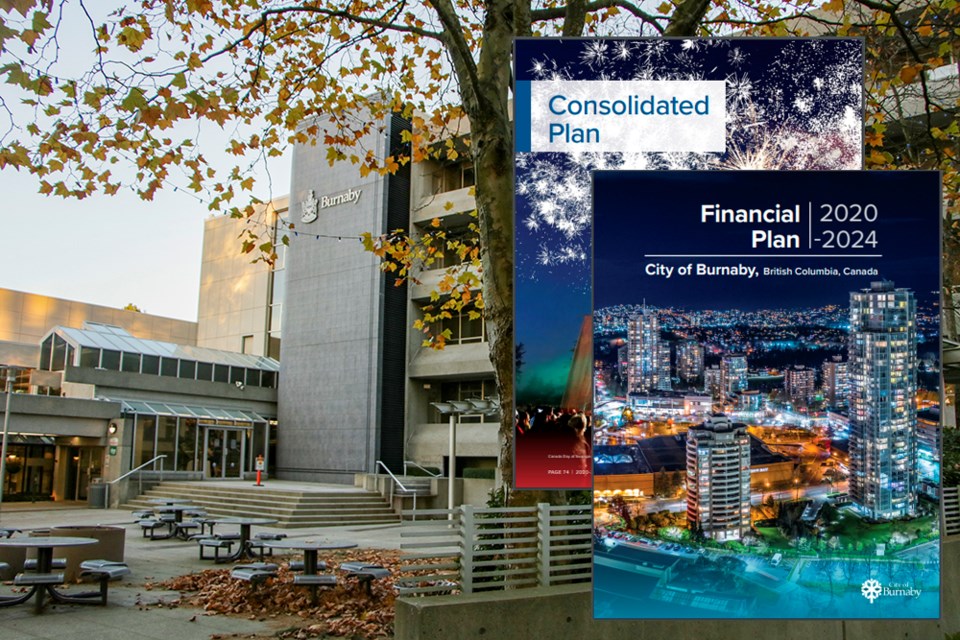The City of Burnaby will be going ahead with a budget totalling more than $801 million for 2020, with city council giving the financial plan unanimous assent in its final approval on Monday.
The budget document has seen some changes since the provisional budget was tabled in February – most notably, the property tax hike, originally set at 3.5%, has been halved to 1.75%. In actual dollars, the original hike was estimated at $63 for the average residential property, but the reduced rate would add up to just over $30.
Where there would be more savings, however, is for commercial properties. The 3.5% tax hike was expected to cost commercial property owners – and renters with triple-net leases – an average of $978, meaning the 1.75% increase would add up to nearly $490 in savings.
On the city’s side, the reduced tax hike is expected to cost the city $3 million, with total revenue from taxes, including parcel taxes, reaching nearly $311 million, about 39% of total revenues. Sales of goods and services are expected to drop by $1 million, while other revenues – which includes returns on investments and community benefit bonuses – are slated to drop more than $17 million.
The losses will be offset, to some degree, by an additional $8.5 million from reserves, totalling $139 million in withdrawals, but the new budget still won’t match February’s $813-million provisional budget.
To accommodate the losses in revenue, Coun. Sav Dhaliwal, vice-chair of the finance committee, told council the city is taking a number of measures.
“That is by delaying some of the hires we were planning to get early in the year towards the end of the year, saving some money from the one-time funding (from reserves) that was to be done, as well as just basically saying, all right, we are going to not do as much capital spending this year,” Dhaliwal said.
Those changes appeared to appease independent councillors Colleen Jordan and Dan Johnston, who had both objected when the reduced tax hike was introduced last month. Jordan said she felt better, in particular, about the one-time funding decreases.
“I was gravely concerned about the dollar value of the reserves that were being requested to be spent and projects included in those,” Jordan said. “With the revisions that are occurring in this budget, we’ve gone from $21 million in one-time funding expenditures down to $13 million.”
Johnston, meanwhile, said he would have preferred the city look to delay hiring for more positions, but overall, he lauded the financial management committee for its work to reduce the tax hike.
“I think that we’ve done a wonderful job of … slashing or delaying a whole bunch of programs that aren’t realistic to start this year,” Johnston said, adding the city doesn’t need to be coming out of the year with a surplus.
“I don’t think it’s politically wise to have a surplus – not that we will.”



